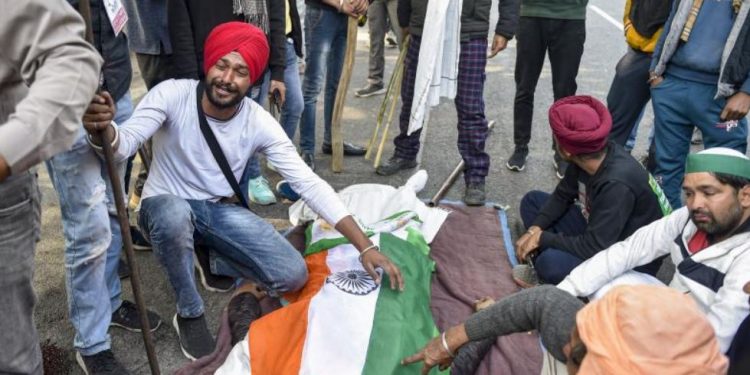New Delhi: A little more than a year after they were passed followed by widespread agitation by farmers declining to accept them, Prime Minister Narendra Modi Friday announced that the Centre has decided to repeal the three farm laws.
Coinciding with the auspicious occasion of Guru Nanak Jayanti, Modi also announced that the constitutional process to repeal the laws would be taken up in the winter session of Parliament that begins November 29 and appealed to the agitating farmers to withdraw their agitation and go back to their homes.
“It seems some of the farmers are still not convinced by our sincere efforts. We have decided to repeal the three farm laws. The constitutional process to repeal these laws would be completed during the Parliament Session that would start at the end of this month,” Modi said, adding an apology in his address to the nation.
Modi also announced to form a committee comprising representatives of the Centre, state governments, farmers, agriculture scientists and agriculture economists to discuss how Minimum Support Price (MSP) can be made more effective, how zero budget farming can be promoted and how crop patterns can be changed in a scientific manner.
After they were passed in the monsoon session of Parliament, the President had given his assent to the three Farm Bills September 27, 2020. The three Bills were Farmers’ Produce Trade and Commerce (Promotion and Facilitation) Bill, 2020, Farmers (Empowerment and Protection) Agreement on Price Assurance and Farm Services Bill, 2020 and Essential Commodities (Amendment) Bill 2020.
Ahead of these becoming laws and soon after that, farmers across the platforms had embarked on agitation, some of them peaceful, some resulting in damage to the government property, including the riotous agitation at the Red Fort on January 26 earlier this year, and also including the loss of lives of more than 600 farmers at various places during the agitation.
Hundreds of these farmers — most of them from western Uttar Pradesh, Punjab, and Haryana under the banner of Samyukt Kisan Morcha — have been camping at various entry points to Delhi. They were not buying the Centre’s argument that the three farm laws would bring in reforms in the agriculture sector and basically remove the intermediaries, because of which the small farmers will benefit.
After the farmers’ agitation erupted, the Supreme Court had earlier in January 2021 stayed the three farm laws and appointed a committee, which had submitted its report, which is not yet made public.
The Prime Minister started his address, saying that the government’s intention was pure, and it had brought the three farm laws hoping to benefit the farmers, especially the small land holding farmers. “Despite our efforts, despite efforts by agriculture economists and agriculture scientists, we failed to convince a section of the farmers about the sincerity of our efforts,” he said.
“The objective of the three farm laws was that the farmers of the country, especially small land holding farmers should be strengthened, they should get right price for their produce and maximum options to sell the produce,” he said.
He also listed a number of steps that have been taken by his government for farmers’ benefits, including an increase in MSP and record procurement this year. “Beej, Beema, Bazar and Bachat (seeds, insurance, market availability and savings) are what we tried to bring for the small land holding farmers, many of whom supported our efforts. I am grateful to them,” he said.
Rakesh Tikait of the Bharat Kisan Union (BKU), a prominent leader of the farmers’ agitation, said, “Our agitation will not end soon. We will wait till the laws are repealed in the Parliament. We demand that the government discuss MSP and other issues with the farmers.”
In a tweet, Rahul Gandhi said: “Congratulations its win against the injustice, the farmers of the nation have compelled the arrogant govt to bend down through satyagraha.”
Congress leader Jairam Ramesh took to twitter to express solidarity with the farmers. “First, bulldoze laws in Parliament. Then face unprecedented protests. Thereafter, confront election realities in Uttar Pradesh and Punjab, particularly. Finally, after much appeal, repeal. Kisan-ity prevails at last! I salute the tenacity of our kisans who did not give up,” he said.
Former Punjab Chief Minister Amarinder Singh too lauded the step and tweeted: “Great news! Thankful to PM Narendra Modi ji for acceding to the demands of every Punjabi & repealing the 3 black laws on the pious occasion of #GuruNanakJayanti. I am sure the central government will continue to work in tandem for the development of Kisan!”






































